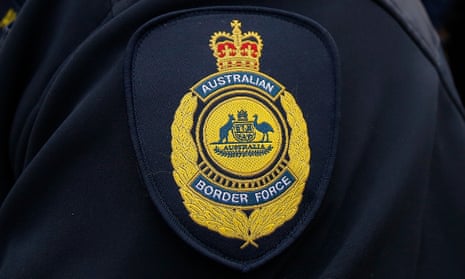In an announcement that sounds bit like a Donald Trump campaign release, the Australian Border Force (ABF) announced on Melbourne it was conducting a massive joint operation in the Melbourne CBD with police and transit officers.
The dramatic release from the ABF and Victoria police has raised serious questions about the extent of policing in the city, and what role immigration officers will play.
The release by the ABF is fuzzy on the details. Although it doesn’t say ABF officers will be conducting visa checks, it says that police will be “positioned at various locations” around the CBD and adds that “you need to be aware of the conditions of your visa”.
But what exactly can police and ABF officers request from members of the public, and when can they request it?
Here’s six key questions answered about the powers of police and immigration officers:
1. Do I need to hand over identification if a police officer asks me for it?
Police powers vary from state to state, but in Victoria under the Crimes Act 1958 the police generally cannot require an individual to provide identification unless they believe, on reasonable grounds, that they have committed or are suspected of committing an offence, or if they can assist in the investigation of an offence.
If police request your identification, they must provide reasons for their belief to allow you to understand the type of offence and the grounds for their belief.
In New South Wales the police have similar powers. Police can request identification of an unknown person if they suspect on reasonable grounds a person can assist in the investigation of an offence because they were at or near the location where an offence was alleged to have occurred.
2. What kind of information are police entitled to ask for?
In Victoria police can only ask for your name and address when conducting an identification check. In New South Wales the phrase identity means “the name or residential address of the person (or both)”.
3. Can police ask for my visa status?
There is no specific power that would compel a person to provide information about their visa status to police.
4. What powers do Australian Border Force officers have?
ABF officers have a suite of powers available to them, but most of these powers relate to passenger exit and entry to determine a person’s identification and visa checks. So if you’re at the airport, it’s pretty clear that you need to provide details of your identity and visa status.
5. Could ABF officers request visa information from people in the Melbourne CBD?
ABF officers may in some circumstances be able to request details of a persons immigration status if they were in the Melbourne CBD. This is largely from existing powers under the migration act that would allow officers to require a person who they “know or reasonably suspect” is a non-citizen to present evidence of their lawful immigration status, or to provide details of their identity.
These kind of “compliance checks” have happened in the past, as noted by the former immigration communications manager Sandi Logan. But in previous instances compliance checks were undertaken in much more limited ways, and often when there had been a tip-off about concerns at a particular location about immigration statuses.
In the event ABF officers were deployed around the city to conduct visa checks, it’s difficult to see how they could “reasonably suspect” that a person was a non-citizen in order to request their visa details without any existing information to support that view.
But if a lawful search resulted in finding that a person was in breach of their visa conditions and should not be residing in Australia, it is possible they could be taken into immigration detention.
6. Why does all this matter?
The prospect of immigration officers conducting large scale operations to check visas around cities raises serious privacy and civil liberties concerns.
The president of the NSW Council for Civil Liberties, Stephen Blanks, said: “Police forces generally speaking are not allowed to simply stop people and ask for ID.
“No state government has gone so far as to say that police will have a power to stop a person who has not engaged in any criminal activity to demand identity details, let alone any other information such as citizenship and visa details.
“One wouldn’t expect immigration officers would be roaming the streets of Melbourne, and if that were to occur it would make people very uneasy.”

Comments (…)
Sign in or create your Guardian account to join the discussion